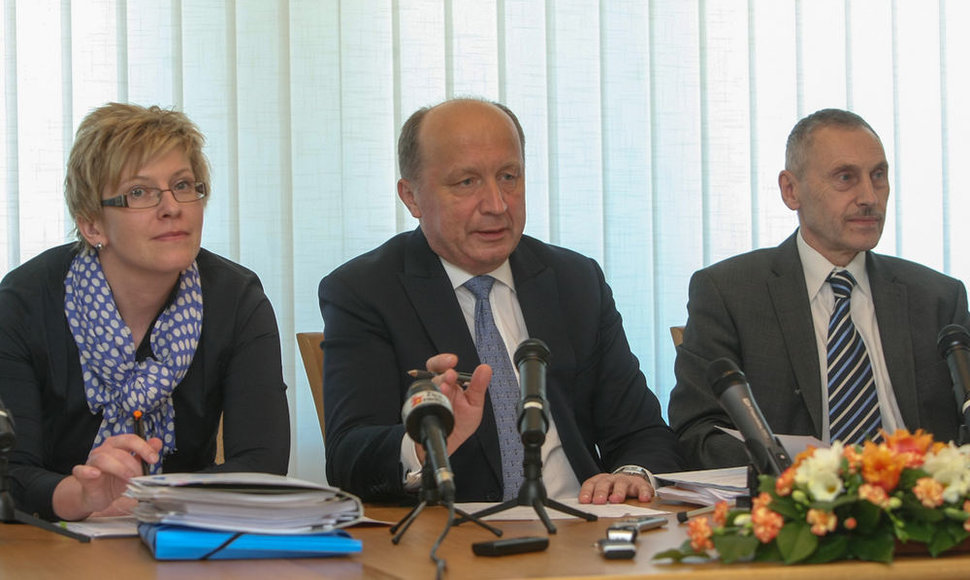The legislative package approved by the government on Wednesday is a major step towards Lithuania’s energy independence, Prime Minister Andrius Kubilius has said.
“It is a historic, very important day. The day of 9 May has become even more significant. The government has just approved a package of very important legislative documents. This day marks a major step towards energy independence,” he said at a news conference on Wednesday.
If the parliament, too, endorses the documents, Lithuania and Japan's Hitachi, the strategic investor in the project, expect to sign a concession agreement by 28 June at the latest.
The package includes a business plan for the Visaginas Nuclear Power Plant, a draft concession agreement with Hitachi, the Finance Ministry's conclusions on the financial risks involved in the project, and a new wording of the Law on Nuclear Power Plant and certain amendments to related laws. The package will be submitted to the Seimas (parliament) next week.
The prime minister and the ministers for energy, finance and economy are expected to release the documents that have been classified until now.
The government also endorsed bills on a liquefied natural gas (LNG) terminal and the synchronization of the electricity grid with those of Western Europe. It had already approved the documents in principle last Monday.
The Visaginas nuclear power facility is estimated to cost up to 5 billion euros, of which 50 to 70 percent would have to be borrowed. The remaining funds would be invested by shareholders of the future joint venture, including Hitachi, Lithuania's state-owned Visagino Atominė Elektrinė (Visaginas Nuclear Power Plant, or VAE), Latvia's Latvenergo and Estonia's Eesti Energia, and, possibly, other investors.
Lithuania would have to contribute nearly 6 billion litas (EUR 1.74 b) to the project, of which some 3 billion to 4 billion litas would be borrowed by VAE, which would hold a stake of around 34 percent in a new company that would operate the plant.
The government and Hitachi initialed the draft concession agreement in late March and expect to sign it by 28 June. The signing of the concession agreement would allow continuing with further design, licensing and site preparation work, which would last for about 30 months and would cost some 300 million euros, of which Lithuania would contribute around 115 million euros.
Another 80 million euros would be invested in the preparatory stage to build roads from the port of Klaipėda, in western Lithuania, to Visaginas, in the northeastern part of the country.
2012 05 09
Lithuanian government approves key energy package
The Lithuanian government took final decisions on a package of documents related to the planned new nuclear power plant, which is estimated to cost 5 billion euros, and other strategic energy projects, including LNG terminal in Klaipėda.
Report mistake
Successfully sent
Thank you














